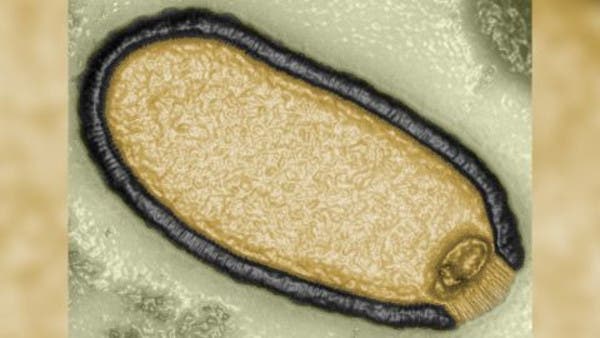[ad_1]
58,000-year-old zombie virus. (Twitter)
Scientists recently discovered that a virus frozen for tens of thousands of years in Siberia’s permafrost is reviving, raising concerns that the pathogen could cause new infections.
For all the latest headlines, follow our Google News channel online or via the app.
Researchers from France, Germany and Russia Resurrected 13 new viruses It has existed on ice in Siberian soil for 27,000 to 48,500 years.
Should we be worried?
Al Arabiya English interviewed an internal medicine specialist in the United Arab Emirates to weigh in on this issue and explain whether zombie virus pose any threat to public health.
Dr. Azeem Abdul Salam Mohamad, an internal medicine specialist at Bareen International Hospital in Abu Dhabi, explained that the viruses can only infect amoebae, not humans.
“But there are other viruses that can infect humans in permafrost,” he said.
Still, these viruses are easily destroyed when exposed to ultraviolet light, heat and oxygen.
“The risk to humans is small and manageable. It may not lead to a pandemic,” he told Al Arabiya English on Thursday.
“The region is largely unpopulated, and the likelihood of virus-host interaction is low.”
While the melting of permafrost has potentially catastrophic consequences, including releasing pathogens into the environment and accelerating climate change, it is also affecting the way of life of indigenous communities.
The Arctic is home to several indigenous communities that depend on the region for their livelihoods, so these issues must be addressed to ensure their protection.
permafrostCovering about a quarter of the northern hemisphere, mostly in Alaska, Canada and Siberia, is melting due to global warming.
Researchers are studying pathogens, including those due to The permafrost thawed.
Viruses dating back 15,000 years have even been found in ice sheets in Tibet, according to research published last year. The findings have raised concerns about potential risks from thawing permafrost.
Although the scientists say their work poses negligible risk to humans, their results can be extrapolated to many other DNA viruses capable of infecting humans or animals.
In December, the researchers published their findings on the online research portal bioRxiv, noting that in the context of global warming, the risk of releasing unknown viruses as ancient permafrost thaws is bound to increase. That’s because the thawing of permafrost will continue to accelerate, and more people will live in the Arctic as industrial enterprises take off.
read more:
‘Zombie virus’: Scientists find infectious particles in thawing permafrost
WHO still struggling to pinpoint origin of COVID-19
No ‘quick fix’ for weight loss: UAE doctor warns of dangers of taking fat burners
read also
[ad_2]
Source link



